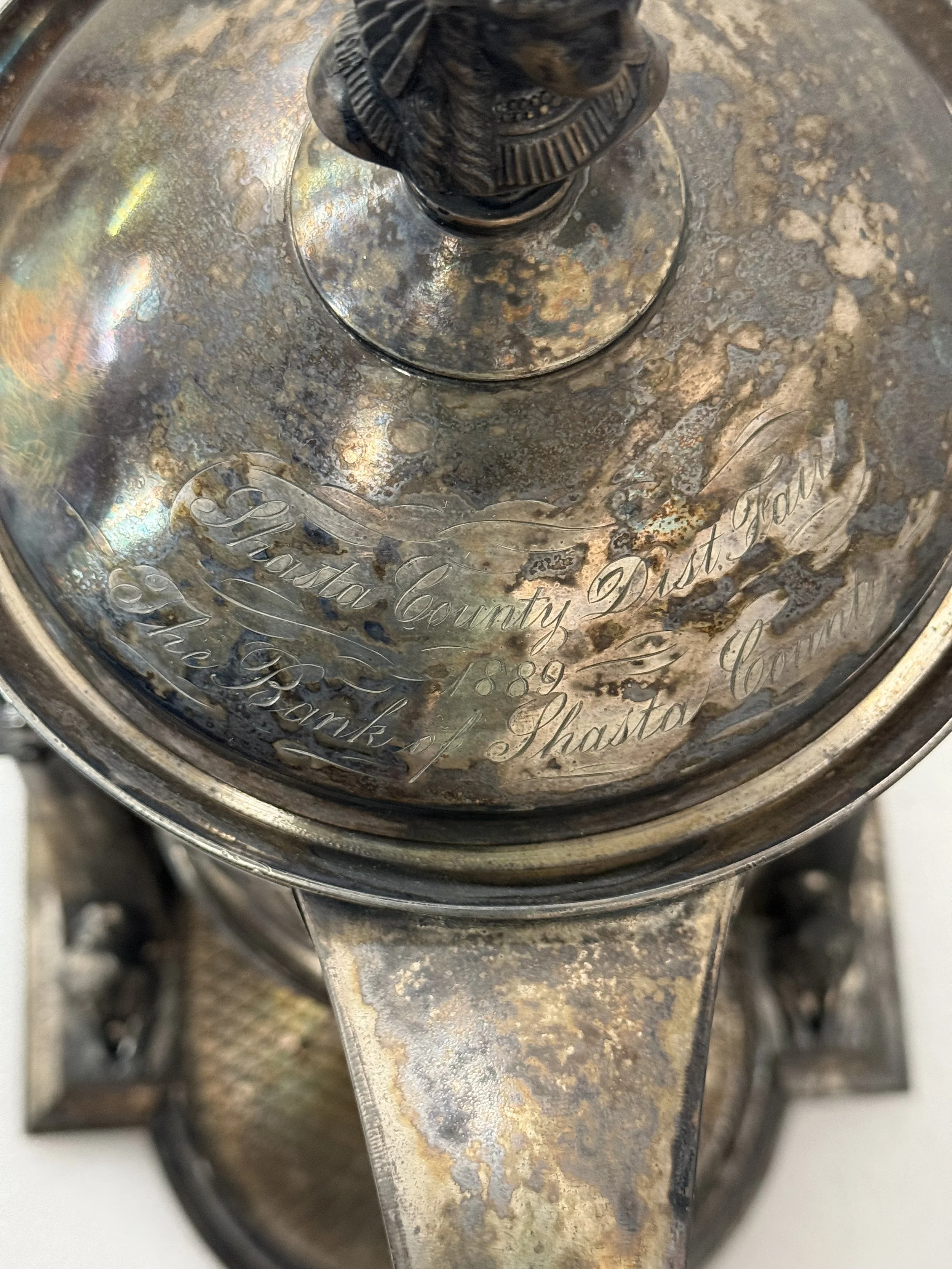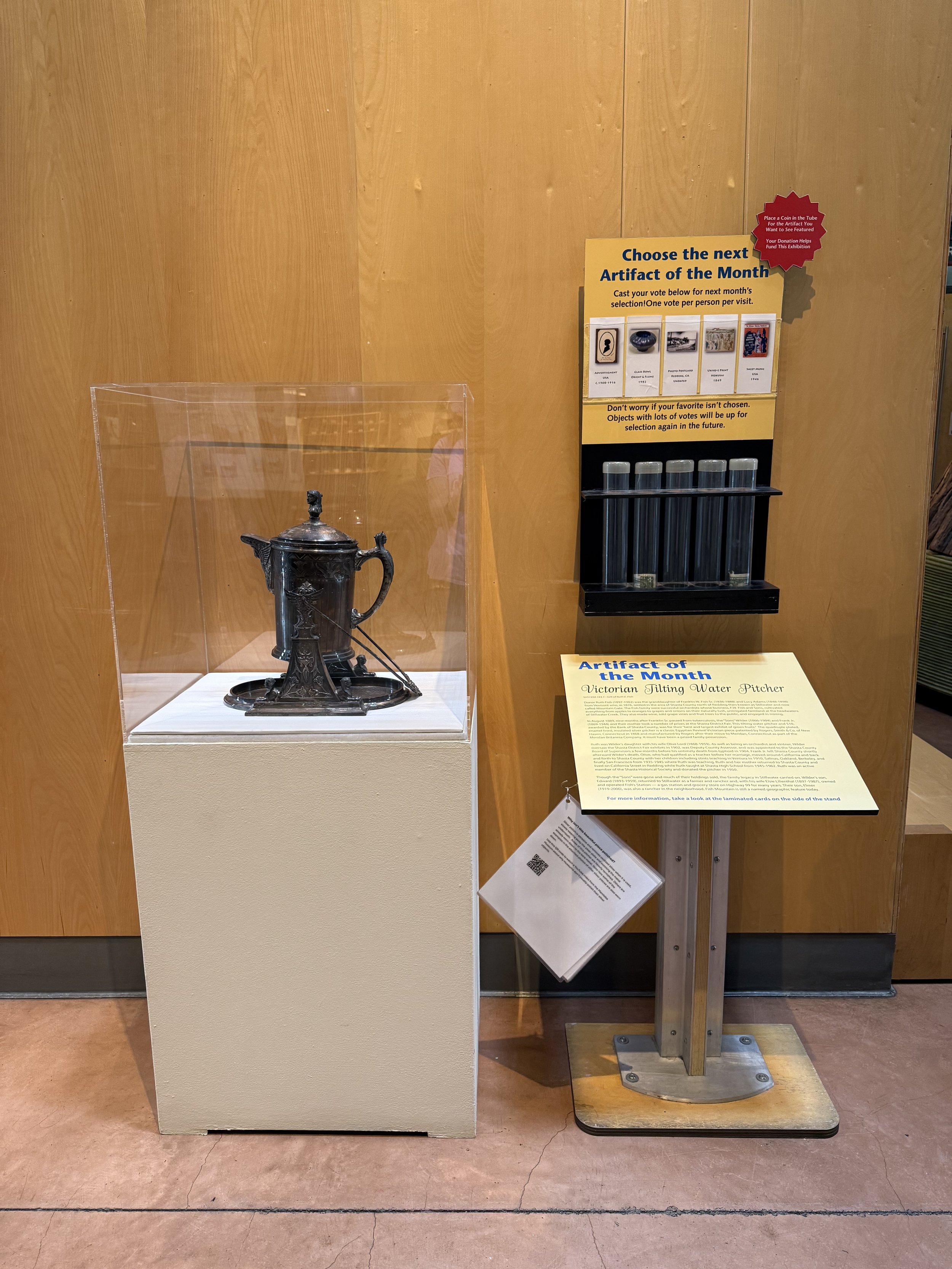Artifact of the Month - Victorian Tilting Water Pitcher
SHS1950.183.1 – Gift of Ruth E. Fish
Julia Cronin, Curator of Collections and Exhibits
How does an object get selected to compete for Artifact of the Month? Why do some artifacts never show up on the voting board, but get chosen anyway? Relevance. In this case, relevance to a current exhibition.
SHS1950.183.1 - Tilting Water Pitcher given as a trophy
As with most of our Artifacts of the Month, this water pitcher’s story is deeper and more interesting than a first glance at the already-intriguing information in its file suggested. The object, which was listed in the database and on the old file card as a “trophy” from the Shasta County District Fair with little description beyond being silver, had no home location code. This is an uncommon issue. Almost all our objects have a “home address,” and if they don’t have a current home location code in the computer, they live with similar objects and can usually be found by looking in the right place.
We happened upon it by chance when we were pulling out the giant coffee urn currently featured in the Emotional Support Beverages exhibition. This water pitcher was hiding at the back of a bottom shelf behind coffee pots. I pulled it out to see if it was coffee-related and knew immediately that it was the “trophy” I had looked for, but not found, when we curated 2017’s Rooted in this Land: Growing Food in Shasta County. The lid is engraved, “Shasta County Dist. Fair 1889 The Bank of Shasta County.” We decided, then and there, that water is an emotional support beverage too and that this would be the April Artifact of the Month.
Artifact of the Month at Turtle Bay
Several hours of research later, I knew exactly what it was, who made it, and who won it at the fair. The quadruple plated, enamel lined, insulated silver pitcher is a classic Egyptian Revival Victorian piece patented by Rogers, Smith & Co. in New Haven, Connecticut in 1868 and manufactured by Rogers after their move to Meridan, Connecticut as part of the Meridan Britannia Company.
Next came the really fun part. The donation information indicated that the trophy had been awarded to “Franklin W. Fish.” Thorough searches of Ancestry.com and Newspapers.com ensued and I learned all about the Fish family, their highly successful fruit orchards in the area once called Stillwater – but now called Mountain Gate, where they cultivated everything from apples to oranges to grapes and onions on their naturally lush, unirrigated farmland at the headwaters of Stillwater Creek. They also made wine, sold grape vines and fruit trees to the public, and engaged in mining.
Closeup of the engraving
Franklin W. Fish and Sons won this valuable trophy or, rather, sons Wilder and Frank, Jr. and their mother Lucy won this trophy and $10 for the “best and largest exhibit of green fruits.” Frank Sr. had passed away from tuberculosis nine months before the fair. Our donor, Ruth Fish, was Wilder’s daughter who has her own interesting story.
To learn more about the pitcher and the family who owned it, stop by the Museum and check out the Artifact of the Month exhibit.
Julia Cronin, Curator of Collections and Exhibits




